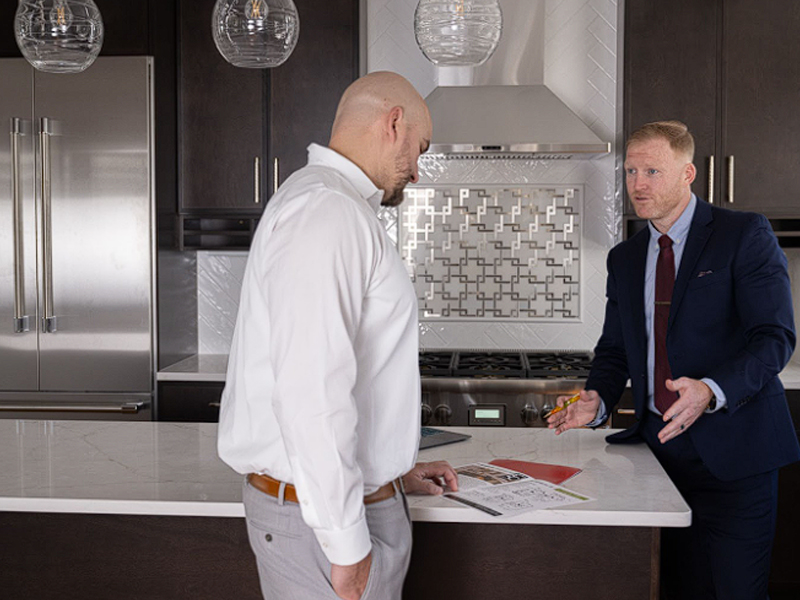So you’re selling your home as-is – in its current condition, warts and all. It takes away a lot of stress from making repairs and improvements. Providing the buyer with a property disclosure statement revealing flaws that may affect the value of the home is never a bad idea.. One rule of thumb…if any material fact could alter a buyer’s decision to purchase, it needs to be disclosed. Hiding known defects can cause huge headaches and potential liabilities down the line!
You should always tell buyers if the property has potential dangers associated that you’re aware of…. The same would apply for positive test results for lead paint or active termites for example!
Thus, before selling your house as-is for cash, it’s best to take note of the following.
THE PROS OF SELLING YOUR HOME AS-IS
Some buyers will prefer that you NOT do any work!
The more work the property needs the less money you should put into your home. If a buyer is going to totally redo the property anyways, they don’t want to pay for any improvements’ that they’re only going to end up redoing anyway.
No repair costs
You don’t have to make costly home improvements. You won’t spend extra time and effort in sprucing up the home either. Most of all, homes that require repair attract investors who flip properties. They usually pay in cash within days or weeks.
Faster sale
A lower sales price means more buyers and can lead to a faster sale. Your home will be priced less than many other homes and buyer’s that can’t afford higher priced property would rather buy a home that needs work and do the work themselves at their own pace.
Odds of an ‘easier’ sale can actually go up!
The probability of a cash offer is much higher… which allows you to do away with mortgage approval and head straight to closing. And you’ll negotiate less after concurring on an offer. Being honest about the home’s as-is status also lessens friction during negotiations.
Fewer contingencies
Real estate contingency clauses can be like reset buttons. They allow both parties to cancel a contract if certain conditions are not met. Appraisal contingency, inspection contingency, sale contingency, and funding contingency are some examples. Selling a home as-is will reduce or eliminate contingencies. This, in turn, reduces stress and raises the chances of a successful deal.
Federal agencies say one need not conduct an appraisal for a home listed under $400,000. Besides, a cash offer can lead to a lower price which could save you from a loan contingency. For qualifying owner occupied properties, the HUD 203k can be a lifesaver! The 203k program is specifically designed for homebuyer’s who will live in the home and offers a low down payment and allows a buyer to finance the construction costs up to 100%. Your Steve Bremis Realty Group consultant can help guide you through the process!
Lower cost
You need not pay the cost of ownership, property taxes, home maintenance, renovation and others. You need not get mired in debt because of renovation costs prior to listing your property.
THE CONS OF SELLING YOUR HOME AS-IS
Low selling price or not…?
A home that needs repair has a lower than normal market value. Necessary repairs mean reducing your price because the home is not in top shape. Buyers may think you’re in a hurry to sell the property or overestimate the cost of repairs they’ll have to take on. You may have a higher probability of buyers’ low balling. Buyers may submit more lowball offers and drastically overestimate the cost of repairs to pick up the property at a greatly reduced price. HOWEVER, THIS IS NOT ALWAYS THE CASE!! A lower price will attract more buyers, especially buyer’s that may be priced out of the market and can’t afford a house that’s already been renovated. ALSO, contractors and developers can be a hot buyer for homes in disrepair…in such an instance, the worse the condition…believe it or not, the MORE attractive it could be for a contractor or ‘flipper’. We have seen homes in disrepair and priced lower than the rest of the market actually lead to multiple bid situations leading to a potential bidding war. The trick, as always, is to price it right!
Fewer buyers
Not everyone likes a house that needs fixing up or has the money needed to repair it appropriately. Pricing your home correctly is critical. Take into consideration the repairs needed and be cognizant of pricing your home taking this into account compared to other homes on the market that are in better condition.
- Financinga home in disrepair can be more difficult and sometimes may even require a construction loan. Homes that need a lot of work may require special rehab programs and/or stronger down payments. As mentioned previously, the HUD 203k can offer a fantastic alternative in such a circumstance.
Negative buyer perceptions
- Buyer’s unfamiliar with doing work to a home may unfairly overestimate the costs of repair which could eliminate younger or newer buyers who might be scared off. This is probably NOT your buyer. There are many buyers who prefer a home in disrepair that they can buy for less money and do a renovation to their personal tastes at their own pace. Buying a home in disrepair requires a lot more diligence and homework…and can definitely be a labor of love but it can also be quite lucrative with the result being a lot of built in equity.
Thinking of selling your house as-is? We’ll gladly help out! Contact the Award Winning Agents at the Steve Bremis Realty Group.. Call 617.828.1070 or message us here.

